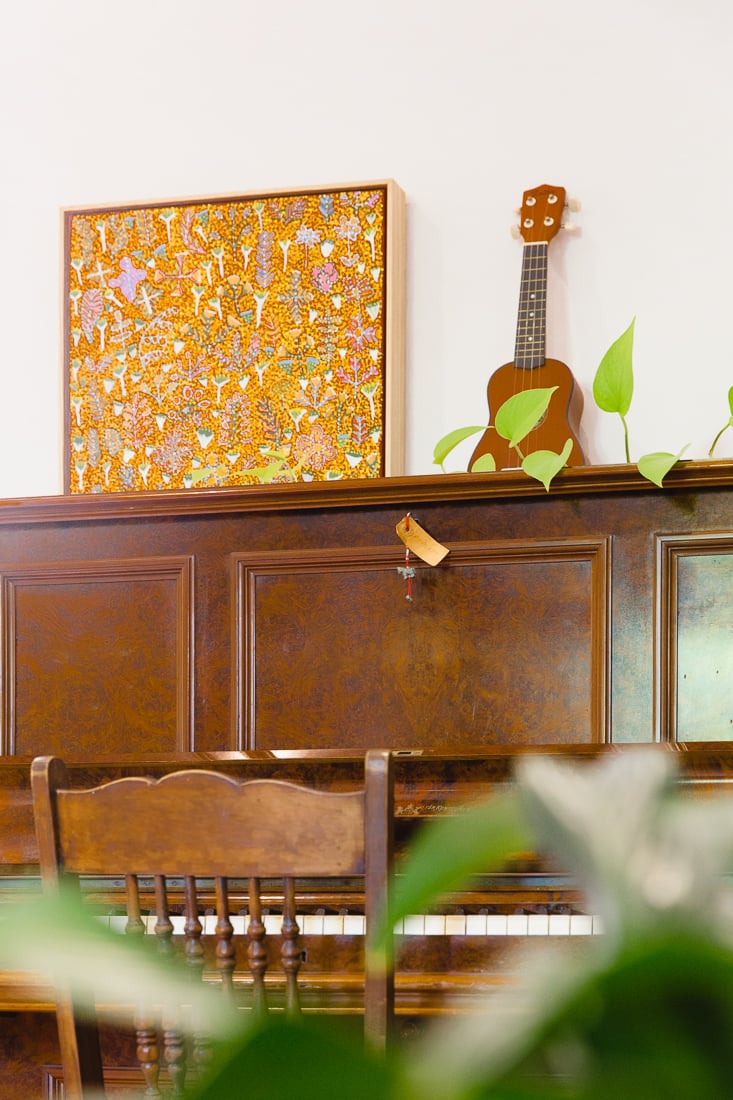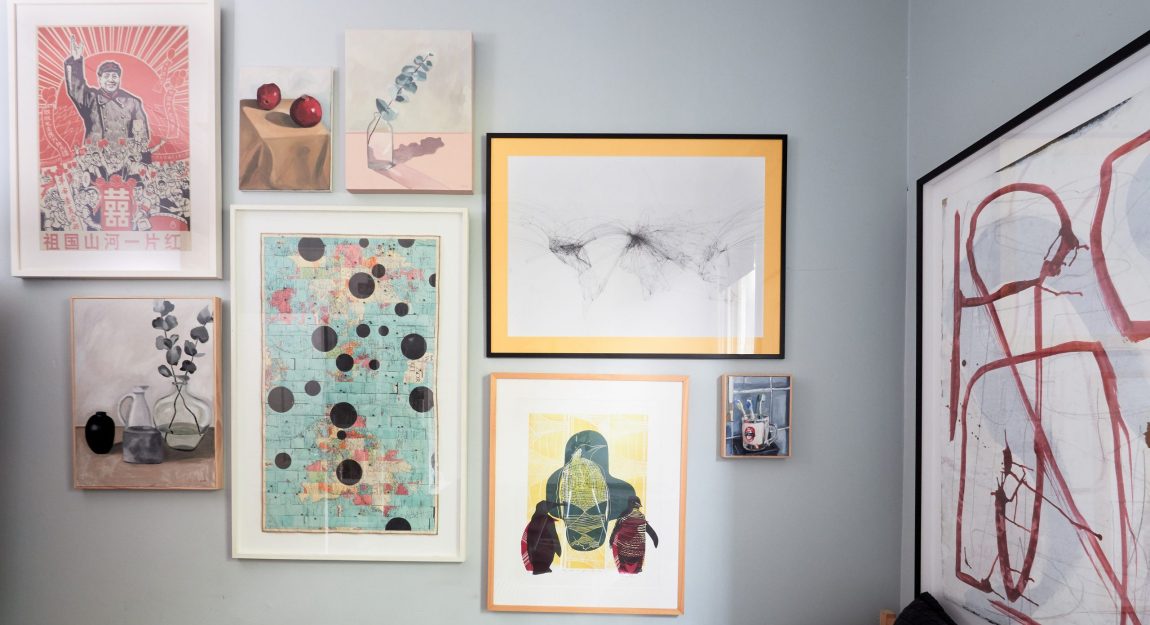How to Care for Your Artwork so it Lasts Forever
The perfect artwork is like the perfect marriage. You’ve found the one; it suits your style superbly. However, some basic maintenance needs to go on behind the scenes to keep your artwork looking the best it can. Much of this maintenance is undemanding, and whether you’re a first-time buyer or have several pieces in your collection, taking time to care for your artwork guarantees a happy ever after!
1. In Prime Position
If you have a spot in mind of where your piece is going to hang, it’s worth taking into account a few factors that will set your artwork up for a good life:
- Save direct sunlight for plants and cats. Art hates sunlight. While watercolours are susceptible to bleaching quickly, even oils or acrylics will fade over time with too much exposure. If possible, embrace shadier spots, or consider framing the piece with UV glass.
- Not too hot, not too cold—just right. Frequent or drastic changes in the room’s temperature can create humidity or dampness. Both of these are huge antagonists to artworks, resulting in warping and discolouration. Instead, think about areas with a steady temperature that match the medium of the artwork.
- Give the moisture a miss. We’d love to have artwork hanging over the bath as much as the next person. Sadly, mildew and moisture hang around bathrooms, and works on paper or delicate materials can quickly become disfigured or damaged.

The local Melbourne legends at Fantastic Framing took care of framing and hanging for this abstract by Dinah Wakefield.
2. How’s it Hanging?
Jokes aside, the planning of the hanging is key. Some simple steps will set you up as an art-hanging pro in no time!
- Find yourself a good-quality frame. Oh, the dread of realising that perfect piece is unframed. As tempting as it can be to chuck a print into a cheapie from Kmart, getting a good-quality frame not only gives an artwork extra flair but can also protect delicate surfaces and paper against damaging elements. Fortunately, Bluethumb offers a custom framing service for original pieces—click here for more information.
- Make sure the fixtures suit the weight of the artwork. A good framer will give the best fixture according to how heavy a piece is. You’ll also need to consider the wall it’s going on—crumbly or weak walls are a big no-no for those large-scale statement pieces.
- Be the curator you wish to see in the world. Your art deserves a place to get noticed and bring a sense of atmosphere to a space. Whether it’s a statement piece flying solo or a segment of a salon-style hang, consider where the piece will flourish. For more ideas, check out our blog on hanging art and making a home gallery.

This well-prepped portrait wall gets Grungle’s woof of approval!
3. The Aftercare
Okay, the dream piece is up safely and is looking mighty fine! Keep it that way with a few regular TLC techniques.
- Keep the chemicals away. Using cleaning products (or even water) on your artwork is just asking for problems. This goes for original artwork, prints, sculptures—the lot. If a thorough clean is needed, leave it to the professionals. It’s not worth risking damage by doing it yourself.
- Check in. Giving your artwork a once-over from time to time will help you look for any signs of dampness or warping that can become much more difficult to repair over time. Some tell-tale signs of unhappy artwork are distinctive brown marks and discoloured patches. By taking a look every few months, you can curb any damage and give it a better-suited environment if necessary.
- Dust. A frequent tickle keeps an artwork looking slick and prevents build-up. Use a dry, soft white cloth for framed works and pieces with a hard surface. Fragile surfaces or heavily textured pieces are best suited to a soft white brush, such as an unused makeup brush.

Giving this painting by Margaret Kemarre Ross a dust at the same time as the piano ensures a glowing space all round.
Showing your artwork a little love from time to time with these tips will keep it looking fresh and at its most impressive.












Great article. Thanks for the tip. Loved the tip hanging above the bath. Thanks so much. Sandra Messner
Some time ago I offered a simple and low cost hanging system for bluethumb artist to hang their paintings at home.I wonder if it is relevant now.